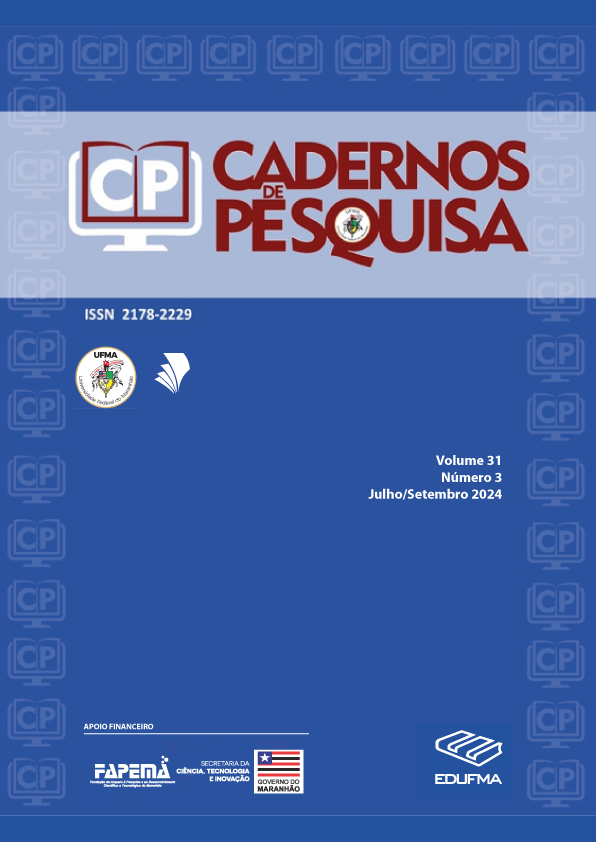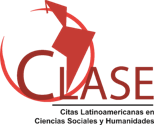Strategies for formulating scientific research questions and information retrieval in the educational contexto
DOI:
https://doi.org/10.18764/2178-2229v31n3.2024.56Keywords:
search strategies, information retrieval, evidence-based approach, Teaching, EducationAbstract
Various strategies have been employed in the health sciences to aid in the formulation of research questions. Some of these strategies are also used in other fields, such as Education and Teaching. However, these strategies often include conceptual components that do not always encompass the educational context. To address this gap, this study aims to present two strategies designed to facilitate the formulation of questions and the retrieval of information more efficiently. The methodological approach involves an exploratory and descriptive study, with a review of strategies frequently used in studies available on the Capes Journals Portal,
published between 2019 and 2023. The strategies developed can be used to formulate questions focusing on the evaluation of the effects of pedagogical interventions or for mapping studies of a specific area. The strategies aim to contribute to the acquisition of research skills and the development of creativity. Additionally, they seek to promote an impact agenda and the progress of subsequent research, including more detailed and complex systematic reviews.
Downloads
References
ARAÚJO, W. C. O. Recuperação da informação em saúde: construção, modelos e estratégias. ConCI: Convergências em Ciência da Informação, Aracaju, v. 3, n. 2, p. 100–134, 2020. Disponível em: https://periodicos.ufs.br/conci/article/view/13447. Acesso em: 15 jan. 2024.
BOOTH, W. C.; COLOMB, G. G.; WILLIAMS, J. M. The Craft of Research. 2 ed. USA: University of Chicago Press, 2003.
BOOTH, A., SUTTON, A.; PAPAIOANNOU, D. Systematic Approaches to a Successful Literature Review. 2 ed. London: SAGE Publications Inc, 2016.
BRASIL. Documento de Área. Área 46: Ensino, 2019. Disponível em: Disponível em: https://www.gov.br/capes/pt-br/centrais-de-conteudo/ENSINO.pdf. Acesso em: 6 fev. 2024.
CAMILO, C.; GARRIDO, M. V. A revisão sistemática de literatura em psicologia: Desafios e orientações. Análise Psicológica, 4 (37), p. 535-552, 2019. Disponível em: https://repositorio.ispa.pt/handle/10400.12/7648. Acesso em: 6 fev. 2024.
CAMPOS, A. F. M. de; CAETANO, L. M. D.; LAUS-GOMES, V. Revisão sistemática de literatura em educação: Características, estrutura e possibilidades às pesquisas qualitativas. Revista Linguagem, Educação e Sociedade, v.27, n.54, 2023, p. 139-169. Disponível em: https://periodicos.ufpi.br/index.php/lingedusoc/article/view/2702. Acesso em: 6 fev. 2024.
CASTRO, C. de S.; COSTA, G. W.; FINAMOR, L. Avaliação de Impacto. Rio de Janeiro: FGV, 2024.
CODINA, L. Revisiones bibliográficas sistematizadas: procedimientos generales y Framework para ciencias humanas y sociales. Barcelona: Universitat Pompeu Fabra, Departamento de Comunicación. Máster Universitario en Comunicación Social, 2018. Disponível em: https://bit.ly/2YnKqUv. Acesso em: 3 fev. 2024.
COELHO, I. M. W. da S. Métodos sistemáticos de revisão de literatura científica: apontamentos para o desenvolvimento e publicação de pesquisas educacionais. Educitec, Manaus, v. 9, e216523, 2023. Disponível em: https://sistemascmc.ifam.edu.br/educitec/index.php/educitec/article/view/2165. Acesso em: 3 fev. 2024.
COELHO, I. M. W. da S. Desenvolvimento de pesquisas educacionais: implicações teórico-metodológicas, propostas e desafios da gestão de dados científicos. Revista Exitus,v. 12, n. 1, p. e022069, 2022. Disponível em: http://www.ufopa.edu.br/portaldeperiodicos/index.php/revistaexitus/article/view/1762. Acesso em: 6 fev. 2024.
COELHO, I. M. W. da S. Avaliação socioformativa no ensino e aprendizagem de línguas: potencializando o uso de rubricas. Meta: Avaliação, Rio de Janeiro, v. 16, n. 50, p. 110-131, 2024. Disponível em: https://revistas.cesgranrio.org.br/index.php/metaavaliacao/article/view/4245/pdf. Acesso em: 6 fev. 2024.
COOK, D. A.; HATALA, R. Validation of educational assessments: a primer for simulation and beyond. Advances in Simulation, v. 1,n. 31, p. 1-12, 2016.
COOKE, A.; SMITH, D.; BOOTH, A. Beyond PICO: the SPIDER tool for qualitative evidence synthesis. Qualitative Health Research, v.22, n. 10, p.1435-1443, 2012. Disponível em: https://www.researchgate.net/publication/230565751_Beyond_PICO_the_SPIDER_tool_for_qualitative_evidence_synthesis. Acesso em: 6 fev. 2024.
DONATO; H.; DONATO; M. Etapas na Condução de uma Revisão Sistemática. Acta Med Port. 32(3), p. 227-235, 2019. Disponível em: https://doi.org/10.20344/amp.11923
EASTERBROOK, S. et al. Selecting empirical methods for software engineering research. Guide to advanced empirical software engineering, 2008, p. 285-311.
EASTERBROOK, S. et al. D. Selecting Empirical Methods for Software Engineering Research. In: SHULL, F., SINGER, J., SJØBERG, D.I.K. (Orgs.). Guide to Advanced Empirical Software Engineering. Springer, London, 2008, p. 285-311.
ELACQUA, G. et al. Educação baseada em evidências: como saber o que funciona em educação. Brasília: Instituto Alfa e Beto, 2015. Disponível m: https://www.alfaebeto.org.br/wp-content/uploads/2015/11/Instituto-Alfa-e-Beto_EBE_2015.pdf. Acesso em: 6 fev. 2024.
HART, C. Doing a literature review: Releasing the social science research imagination. London, UK: Sage Publications, 1998.
HATTIE, J. A. C. Visible Learning: a Synthesis of Over 800 Meta-Analyses Relating to Achievement. New York: Routledge, 2009.
LEVITT, R., et al. Assessing the Impact of Arts and Humanities Research at the University of Cambridge. Cambridge: RAND, 2010. Disponível em: https://www.rand.org/pubs/technical_reports/TR816.html. Acesso em: 10 fev. 2024.
LEEUW, F.; VAESSEN, J. Impact evaluations and development: NONIE Guidance on Impact Evaluation, Washington: World Bank, 2009.
LEVY, Y.; ELLIS, T.J. A system approach to conduct an effective literature review in support of information systems research. Informing Science Journal, v.9, p.181-212, 2006. Disponível em: https://www.informingscience.org/Publications/479. Acesso em: 10 fev. 2024.
MENDES, L. O. R. PEREIRA, A. L. Revisão sistemática na área de Ensino e Educação Matemática: análise do processo e proposição de etapas. Revista Educação, Matemática, Pesquisa, vol. 22, n. 3, 2020, p. 196-228. Disponível em: https://revistas.pucsp.br/index.php/emp/article/view/50437. Acesso em: 10 fev. 2024.
MENDONÇA, A. P.; COELHO, I. M. W. da S. Rubricas e suas contribuições para a avaliação de desempenho de estudantes. In: SOUZA, A. C. R.; COELHO, I. M. W. da S.; CABRAL NETO, J. S.; AZEVEDO, R. O. M. (orgs.). Formação de professores e estratégias de ensino: perspectivas teórico-práticas. Curitiba: Appris, 2018. p. 109- 125. Disponível em: https://www.researchgate.net/publication/353192751. Acesso em: 14 jan. 2024.
METHLEY, A. M. et al. PICO, PICOS and SPIDER: a comparison study of specificity and sensitivity in three search tools for qualitative systematic reviews. BMC Health Services Research, 14, 579, p. 1-10, 2014. Disponível em: https://www.ncbi.nlm.nih.gov/pmc/articles/PMC4310146/pdf/12913_2014_Article_579.pdf. Acesso em: 10 fev. 2024.
OANCEA, A. Interpretations of Research Impact in Seven Disciplines. European Educational Research Journal, v.12, n. 2, 2013, p. 242–50. Disponível em: https://journals.sagepub.com/doi/epdf/10.2304/eerj.2013.12.2.242. Acesso em: 10 fev. 2024.
OCDE. Draft NONlE statement on impact evaluation. In: MEETING OF THE DAC NETWORK ON DEVELOPMENT EVALUATION, 2008. Disponível em: https://www.oecd.org/dac/evaluation/dcdndep/40104352.pdf. Acesso em: 10 fev. 2024.
OKOLI, C. Guia para realizar uma Revisão Sistemática de Literatura. EAD em Foco, 9(1), 2019, p.1-40. Disponível em: https://eademfoco.cecierj.edu.br/index.php/Revista/article/view/748/359. Acesso em: 10 fev. 2024.
ORSATI, F. T. et al. Práticas para a sala de aula baseadas em evidências. São Paulo: Memnon, 2015.
SOUZA, A. P. de; AMARAL, A. do. A arte de elaborar uma pergunta de pesquisa. Nursing Edição Brasileira, vol. 27, n. 310, 2024, p. 10161–10166. Disponível em: https://www.revistanursing.com.br/index.php/revistanursing/article/view/3168. Acesso em: 6 fev. 2024.
VOSGERAU, D. S. R.; ROMANOWSKI, J. P. Estudos de revisão: implicações conceituais e metodológicas. Revista Diálogo Educacional, Curitiba, v. 14, n. 41, p. 165-189, jul. 2014. Disponível em: https://doi.org/10.7213/dialogo.educ.14.041.DS08. Acesso em: 6 fev. 2024.
WILLIAMS, J. M.; COLOMB, G. G. The craft of argument. 2 ed. New York, NY: Longman., 2003.
XAVIER JUNIOR, G. F. et al. A complexidade do contexto informacional em saúde e os desafios do processo de busca por evidências. Revista Fontes Documentais. Aracaju. v. 3, Edição Especial, p. 263-272, 2020. Disponível em: https://periodicos.ufba.br/index.php/RFD/article/view/57811. Acesso em: 18 jan. 2024.
Downloads
Published
How to Cite
Issue
Section
License
Copyright (c) 2024 Cadernos de Pesquisa

This work is licensed under a Creative Commons Attribution 4.0 International License.
A Cadernos de Pesquisa está licenciada com uma Licença Creative Commons Atribuição 4.0 Internacional.




















